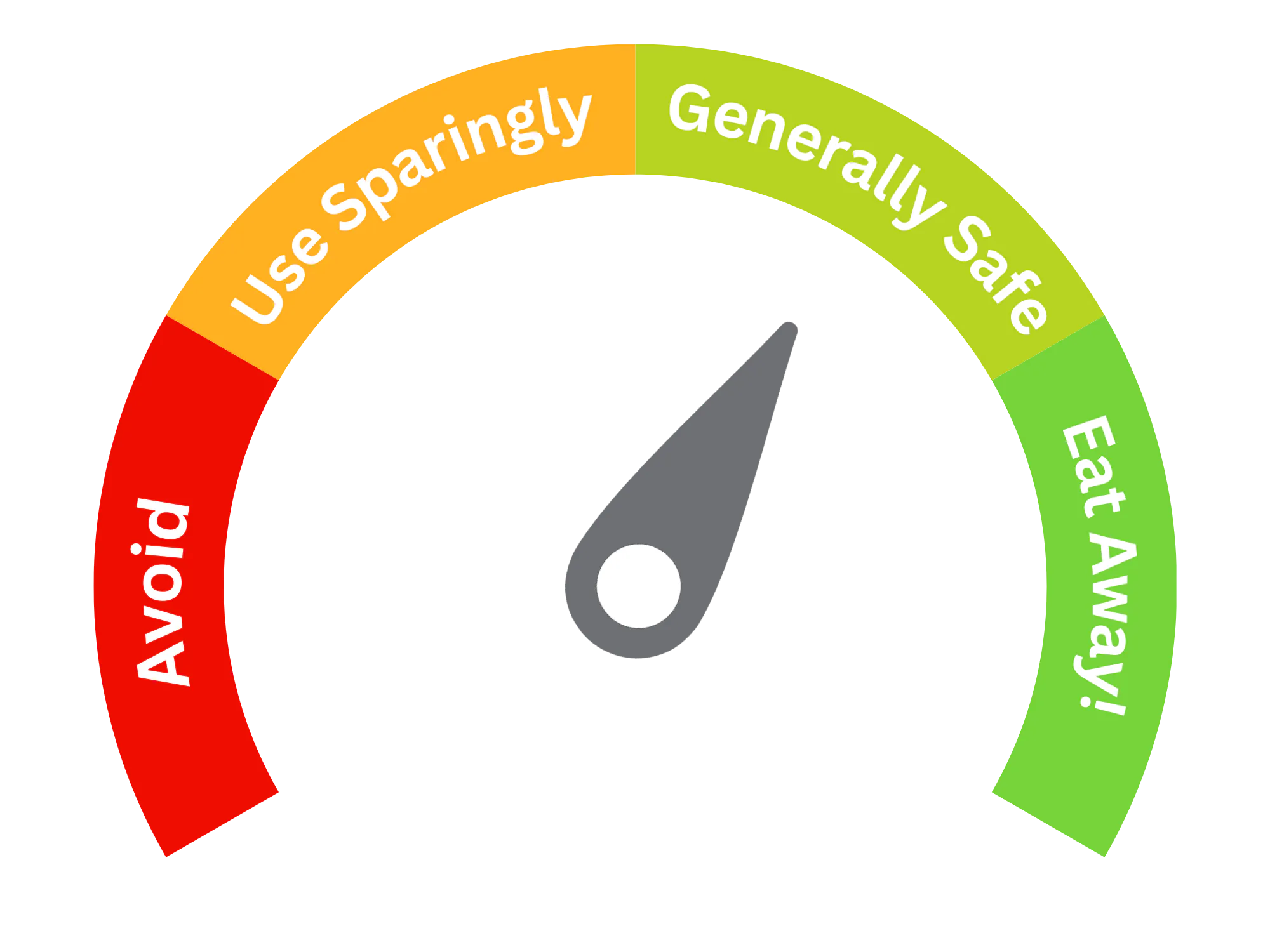Curcumin (E100)
| Type of additive (Glossary) | Antioxidants, Colorants, Flavoring Agents, Preservatives |
| E Number | E100 |
| Chemical Formula | C21H20O6 |
| Also Known As | Natural Yellow 3 Diferuloylmethane Turmeric extract |

Purpose and Function
Curcumin is a natural yellow pigment extracted from the rhizome of the turmeric plant (Curcuma longa). It is widely used in the food industry for its vibrant yellow color and potential health benefits. The main purposes and functions of curcumin include:
- Colorant: Curcumin is primarily used as a natural colorant, providing a bright yellow hue to a variety of food products. It is commonly found in items such as mustard, curry powders, cheese, butter, and beverages. Its natural origin and vibrant color make it a popular alternative to synthetic yellow dyes like Tartrazine (E102).
- Flavoring Agent: Beyond its coloring properties, it imparts a mild, earthy, and slightly bitter flavor to foods. It is an essential component of curry powders and other spice blends, contributing to the characteristic taste of many Asian and Middle Eastern dishes.
- Antioxidant: Curcumin has potent antioxidant properties, helping to protect food products from oxidative damage. This can enhance the shelf life of foods by preventing the formation of off-flavors and rancidity.
- Preservative: Due to its antimicrobial activity, E100 can act as a preservative, inhibiting the growth of certain bacteria and fungi. This function, combined with its antioxidant properties, makes it a valuable additive in processed foods.
Curcumin is also widely recognized for its potential health benefits, including anti-inflammatory and anti-cancer properties. While it is primarily used as a food additive, it is also commonly found in dietary supplements and herbal remedies.
Potential Risks and Side Effects
Curcumin is generally considered safe for most people and is used extensively in traditional medicine. However, there are a few considerations and potential risks associated with its consumption:
- Allergic Reactions: Although rare, some individuals may experience allergic reactions to curcumin or turmeric. Symptoms can include skin rashes, itching, and gastrointestinal discomfort. People with known allergies to the Zingiberaceae family (which includes turmeric and ginger) should exercise caution.
- Gastrointestinal Issues: High doses may cause gastrointestinal disturbances, such as nausea, diarrhea, and stomach cramps. This is typically associated with excessive consumption beyond what is typically found in food products.
- Interaction with Medications: Curcumin can interact with certain medications, such as blood thinners (e.g., warfarin), anti-inflammatory drugs, and diabetes medications. This interaction can either enhance or inhibit the effects of these drugs, leading to potential health risks. Individuals on medication should consult their healthcare provider before consuming curcumin supplements.
- Heavy Metal Contamination: In some cases, commercially available turmeric and curcumin products have been found to contain heavy metals like lead due to contamination during processing. This highlights the importance of sourcing high-quality products from reputable suppliers.
Despite these potential risks, the safety profile of curcumin is generally favorable when consumed as a food additive in moderate amounts.
